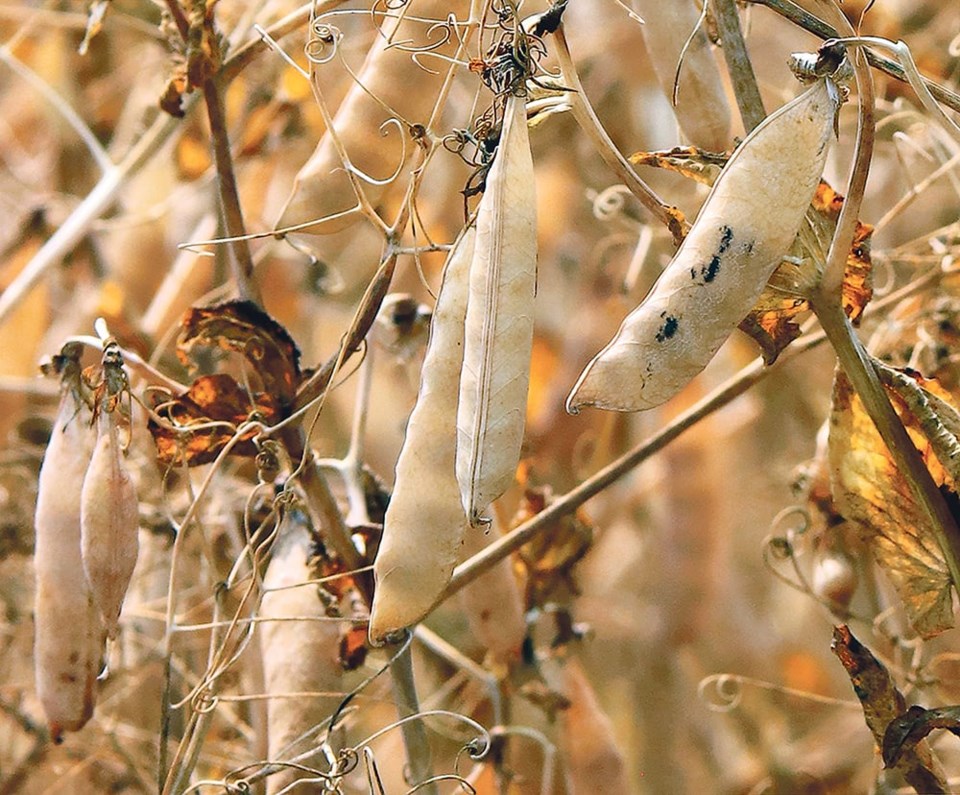WESTERN PRODUCER — Russian peas are on the way to China, signaling the start of a new era in Canada’s top market for the crop.
“The first shipments are already happening from Siberia regions,” Rustam Guliev, a commodity trader with Russia’s Top Grain, said in an email.
“Also hearing that shipments are done from the south side (of Russia) as well.”
However, companies are experiencing problems with documents because nobody from Russia has shipped peas to China before. The door only opened late last year when China signed a new pea phytosanitary agreement with Russia.
Guliev expects China to quickly become a top export market for Russian peas once the document issues are resolved, starting with large volumes in 2023-24.
“There are big players who are ready to buy even Panamax vessels, which makes me think that volumes exported to China will be counted as hundreds of thousands (of tonnes),” he said.
Russia produced an estimated 3.6 million tonnes of peas last year, which is more than the 3.42 million tonnes Canadian growers harvested.
Around 1.8 million tonnes of Russia’s peas will be consumed domestically, and another 1.6 million tonnes will be exported to traditional markets like Turkey, Bangladesh, Pakistan and Italy.
That leaves 200,000 tonnes plus another 600,000 tonnes of carryover from the previous year that could be exported to China, he said.
AgPulse Analytica analyst Gaurav Jain called the Russian shipments a “game changer” in a recent article he wrote for the Global Pulse Confederation.
“We expect this move will have an impact akin to the Indian policy changes in 2017,” he said.
Jain anticipates much of the trade will be out of Russia’s Vladivostok port in the southeastern part of the country on the Sea of Japan. That port can easily move peas from farms in Siberia to Chinese processing facilities.
“Given China’s enormous appetite for peas, this will be a defining moment for the industry,” said Jain.
China has been purchasing 1.5 to three million tonnes of peas annually for the past five years. Canada supplies almost all of that volume. It is Canada’s top market by a long shot.
Jain said Russia will provide stiff competition for Canada in that market once the new trade channel starts being fully utilized.
“It is too early to put a number for the new trade flow,” he said in an email. “I prefer to wait for the first cargoes to get cleared.”
He expects Russia’s peas to be consumed initially by China’s feed sector, though that market is rather small this year, according to a recent Stat Publishing article published by Saskatchewan Pulse Growers.
“Movement to China appears to be mainly for human consumption,” stated publisher Brian Clancey.
“Despite a recovery in hog production, it is unlikely that the country’s feed manufacturers will show much interest in peas unless prices are more competitive with other ingredients.”
Jain expects Russian pea acres will increase, especially in the Siberian region, once product starts smoothly flowing to China.
Guliev said it is difficult to predict the behaviour of Russian farmers. It all depends on crop margins and regions.
For instance, in some regions of Russia the cost of production for lentils is three times lower than yellow peas. For that reason, he doesn’t anticipate a big increase in pea acres because farmers always pay attention to margins more than markets.
Contact [email protected]




